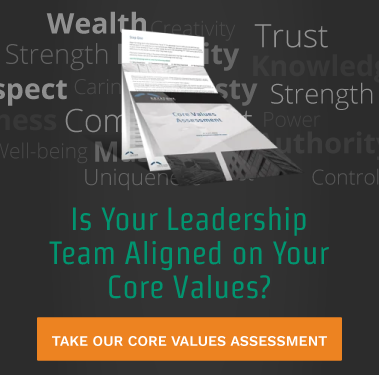During our many years of recruiting senior level talent for employee-owned companies, KeyStone Search has discovered a number of characteristics that a leader must possess to be successful in an ESOP. We've also found a few key things that simply do not work. Perhaps the most significant red flag is a leader with an overly large ego. You know the type - people who go well beyond confident, venturing into the land of cocky. Nothing is ever their fault, and no one is quite as smart or gifted as they are.
I've discussed this in various venues over the years and I often get the question: isn't being cocky a problem for any leader? In other words, why is it any more important for ESOP leaders to have low egos than leaders in any other type of company?
It's certainly a good point - overly big egos are often the undoing of leaders of all types and not just in business settings. However, in an ESOP, a big ego is particularly damaging, not just to the leader, but to the whole company.
The Impact of a Big Ego on an Employee-Owned Company
So why is a big ego so damaging? The very nature of the ESOP structure breaks down traditional hierarchy. When everyone in the company is an owner, they legitimately have a say in the direction of the company. Don't misunderstand, I'm not stating (or advocating) that there is no hierarchy at all - employee owners still work at different levels and contribute differently. But, the level of hierarchy is definitely lessened.
So what does this mean from a leadership standpoint? Effective leaders in ESOPs have to accept (and even champion) this lessened hierarchy. It cannot be seen as an affront to authority or a sign of disrespect when an employee owner from the welding department shares an opinion. It cannot be viewed as insubordination when an employee owner stands up at the town hall meeting and asks for more detail about the drop in share price.
Leaders with overly large egos do not like and often will not tolerate being questioned, even if the questioning is just perceived or inadvertent. Their ideas, strategies and behaviors are perfect and if you want to be promoted, it's best to tell them so.
Lessened hierarchy, more input and stronger engagement from all levels of the company are some of the key reasons ESOPs outperform other types of companies over time. Therefore, if you make an ego-related hiring mistake at the upper levels of your ESOP, it can be incredibly damaging. In effect, you are killing the golden goose.
To sum it all up, make sure you are diving deep on ego when interviewing candidates for leadership roles in your ESOP. It is wise to hire leaders from companies that are larger and/or more sophisticated than your own - they can bring many things you need for growth. But it is also easy to become enamored with the gaudy statistics a leader may share from their previous position and overlook a serious ego problem - screen carefully!




